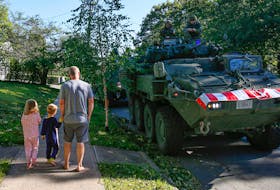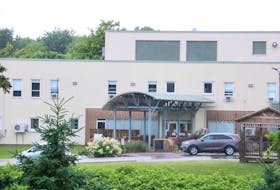In the latter part of October, CBC launched the School Violence series, which included a report on violence, physical and sexual assault, bullying, and racial, homophobic and sexual harassment in Canadian schools. The series is intended for a wide audience, broadcast on the CBC news app, radio, and various CBC TV programs, and more news stories have been added since its' launch.
(As a starting point to the series, see www.cbc.ca/news/canada/school-violence-editors-note-1.5331402).
The report itself was based on an anonymous online survey of 4,065 young people between 14 and 21 years of age, and it focused on their experiences in school. Fifty-two per cent of respondents were between the ages of 14 and 17. Fifty-five per cent of those who participated were still in school, specifically in grades 7 to 12. Fifty-one per cent of respondents identified as male, 48 per cent as female. Most of the people surveyed identified as white/non-visible minority but there were 1,200 participants who self-identified as a visible minority and 115 who selected 'other' or chose not to answer that specific question. Thirteen per cent of those surveyed came from rural areas, all of the others from urban centres, and 40 per cent of respondents were from Ontario, with 19 per cent of those from the Greater Toronto Area.
The results of the survey are alarming. Among other findings, 41 per cent of males reported being physically assaulted at school; 26 per cent of girls reported unwanted sexual contact; and 25 per cent of all respondents experienced sexual harassment or assault before Grade 7. Fifteen per cent of female respondents said that they had been subjected to a forced sex act during their time at school, and nine percent of males reported being sexually assaulted by their peers. Twenty per cent of males said they had been threatened with a weapon. Here in Atlantic Canada, the report found 71 per cent of students at rural schools had been called hateful names while at school.
Perhaps most troubling, nearly half of high school students did not report the violence they experienced or witnessed to school staff.
Back in the day, when there were elected school boards in the province, this kind of report would have received a great deal of attention. It would have been talked about at the board table and board staff would have provided insight and analysis.
Three questions, I think, would be at the centre of those discussions: Was the data accurate?
How do schools within the board region compare to the national numbers? Most importantly, what is being done to address the serious issues raised?
It is likely that the discussions at the regional boards would have moved on to the Nova Scotia School Boards Association (NSSBA), where resolutions on what to do about school violence could have been decided and then sent directly to the Department of Education and Early Childhood Development.
Without those options however we are left to wonder, what happens with the CBC report now?
One idea should be to put the information from the report into the hands of the school advisory councils (SACs) at each school. After all, the issues around school violence often pertain to home as well as school, and most solutions will include students, parents or adults at home, and school staff.
SACs should look at the data on violence as it pertains to their school and to ask the same questions that boards would have raised, but now with a local, school-based focus.
is already a mechanism for school violence data in Nova Scotia to move to the department but what is desperately needed is a way for that same data to go each and every SAC in the province.
Since the dissolution of the English-language elected school boards there has been lots of talk - but little action - about enhanced SACs. This new data about school violence could be the very thing needed to turn words into action.
Adam Davies is a Pugwash resident and former member of the Chignecto-Central Regional School Board. He works with the Cumberland Public Libraries.

![['At the School Board with Adam Davies']](https://saltwire.imgix.net/at-the-school-board-with-adam-davies-3158870.jpg?cs=srgb&fit=crop&h=568&w=847&dpr=1&auto=compress%2Cenhance%2Cformat)







